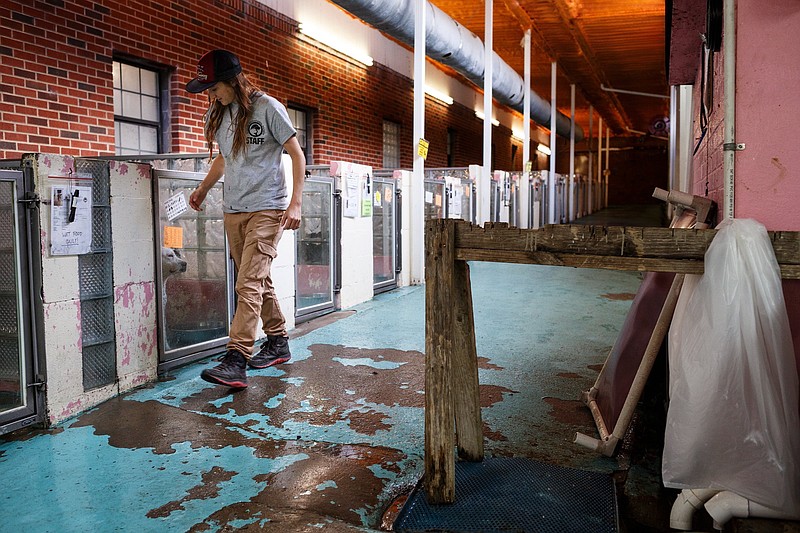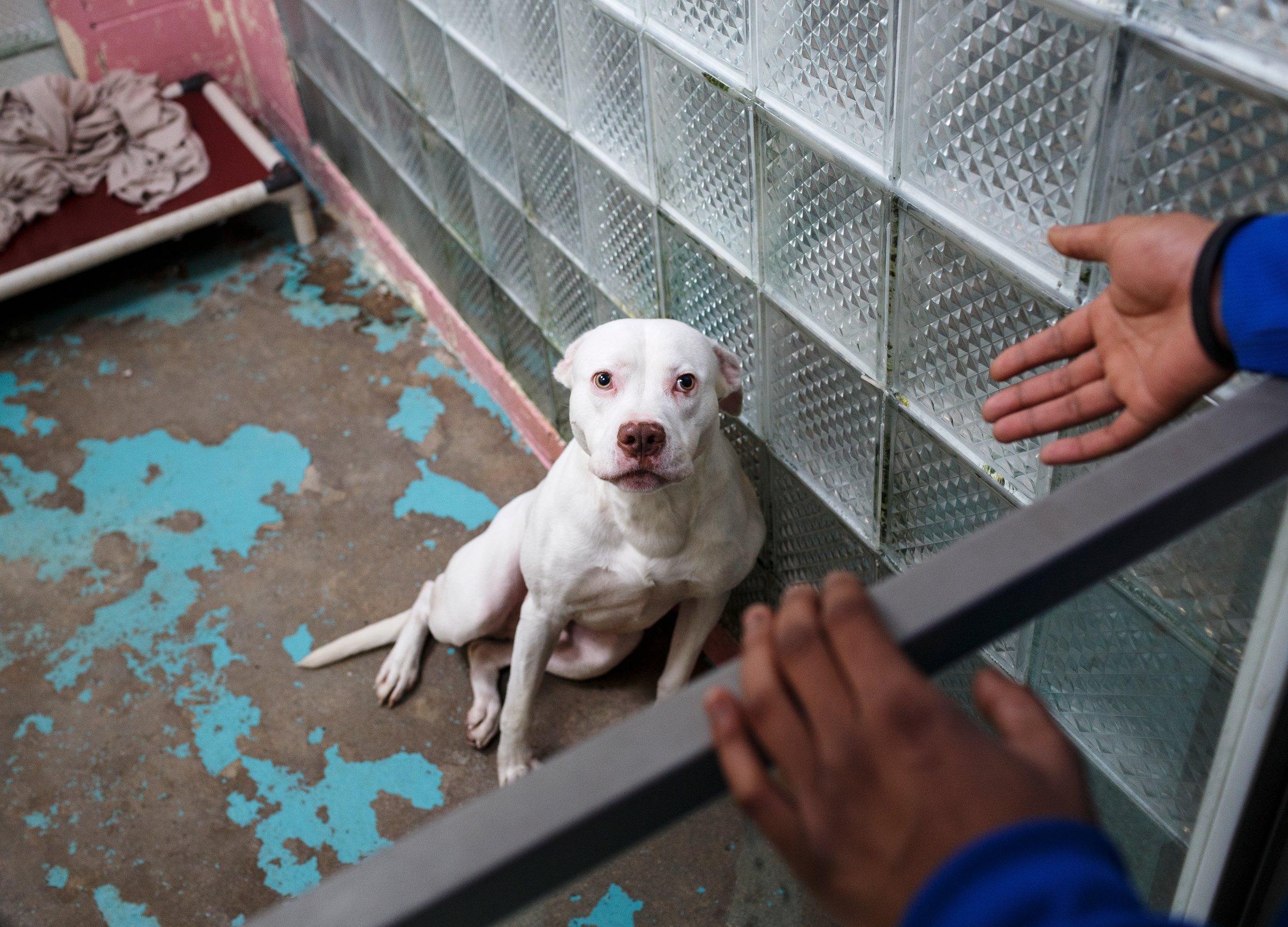Here's hoping that a "seeing is believing" tour of Hamilton County's Humane Educational Society's nonprofit animal shelter has fully persuaded a majority of our Hamilton County commissioners to free up $10 million in our public money to construct a new facility near Bonny Oaks and Highway 153.
A resolution to turn over the funds is up for a vote next Wednesday, and it's long overdue.
The shelter for years has been housed in a 118-year-old former orphanage in the Orchard Knob/Highland Park community with a copiously leaking roof, uneven concrete floors and cramped, winding passageways.
HES officials hope to build a new 35,000-square-foot animal shelter on 6.8 acres at an estimated cost of $13 million. Executive Director Bob Citrullo said the new shelter would include much needed surgical facilities to spay and neuter animals. It also would allow HES to provide community animal education, increase adoptions and improve response when law enforcement needs animal services.
Citrullo and a roomful of shelter volunteers and staff packed the County Commission room last week to make their case for a new facility. Citrullo said the organization's budget is $1.8 million annually, including an yearly allocation of $620,970 from Hamilton County. Animal adoptions increased from 812 in 2013 to 2,308 in 2017, he said, and animal euthanasia fell from 1,411 in 2013 to 521 last year.
He said 72 percent of the animals handled by the shelter come from unincorporated Hamilton County and the remaining 28 percent from the smaller municipalities. Those municipalities also are being asked to contribute to the capital project. The Humane Educational Society will raise the remaining funds.
Coppinger said the proposed $10 million in capital funding - which he recommends - will come from money generated by the 2017 property tax increase. He said the county was able to set aside $14 million for capital projects because it did not have to pay debt service in the first year on many school projects funded by the tax increase.
After their tours, at least some commissioners seemed inclined to vote for the project, including Katherlyn Geter and Vice Chairman Randy Fairbanks.
We couldn't agree more.
Would it have been smarter years ago to combine the city's McKamey Animal Shelter and the county operation into one larger facility and service? Absolutely. And there was some conservation about it at the time when McKamey was in the building stages.
But it did not happen. Nor is it likely to happen, since both shelters are independent agencies with policy differences and contracts to serve different localities.
The Humane Educational Society performs a valuable service for Hamilton County residents - one not met by any other area shelter. We should support it appropriately, both with our personal donations and with our tax dollars through allocations from the county commission and local municipalities.

